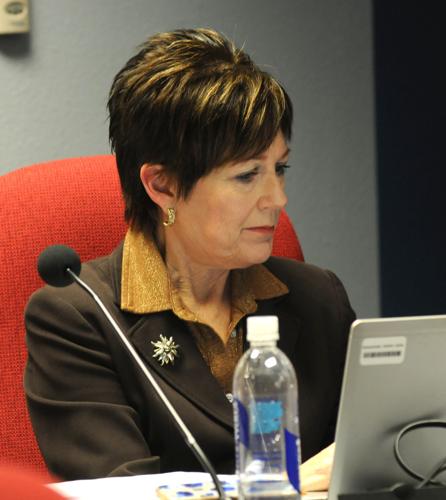PHOENIX — A divided House voted Tuesday to keep people born biologically as male from participating in interscholastic or intramural sports as a female, regardless of the person’s gender identity and even if there had been a sex reassignment.
House Bill 2706, approved on a 31-29 margin with all of the House’s Republicans in support, now goes to the Senate.
The bill would do more than close off sports designated for females to anyone “of the male sex.” It also would require that any student whose sex is disputed get a genetic test, with the results certified by a physician.
The vote came despite the fact the Arizona Interscholastic Association already has protocols in place to determine whether a student can participate on an athletic team that differs from their sex assigned at birth.
That process includes a description of the student’s “gender story,” including the age when they became aware of “incongruence” between the sex assigned at birth and the gender identity. Other factors include whether a student is undergoing gender transition and has letters of support from a parent, school administrator and a qualified health-care provider.
AIA Executive Director David Hines told Capitol Media Services his organization had “about 10” cases in the past three or four years where it approved allowing someone to participate in a sport that did not match his or her birth gender. He said “about six” of those athletes were born male but identify as female.
Rep. Nancy Barto, R-Phoenix, who is sponsoring the legislation, said she does not believe the AIA rules are either sufficient or should be the last word.
“It’s harming women to allow AIA to control,” she said, because it allows biological males to compete with those born female.
That’s also the assessment of House Speaker Rusty Bowers, R-Mesa.
“We are here to protect Title IX,” he said, referring to the federal civil rights law designed to give women equal opportunities in sports. Bowers said allowing biological males to take slots in women’s sports undermines that.
Barto agreed, saying the legislation will ensure the continuance of women’s sports, meaning sports played by women and only women.
“Anyone who cares about making sure that … women are playing on a level playing field wants to see a bill that’s going to clarify that women will have that going forward in Arizona,” she said. “We want to make sure that my granddaughters and their offspring, that the future of Arizona has women’s sports in its future.”
Much of the debate centered around exactly who could challenge an athlete’s gender.
The legislation does not spell that out. Instead, it would give a separate right to sue to “any student who is deprived of an athletic opportunity or suffers any direct or indirect harm” because a biological male participated in a sport reserved for girls or women.
That lack of specificity on demanding a test bothered Rep. Reginald Bolding, D-Laveen, who is the father of two girls.
“Do you think it’s OK for someone to compel me to get my little girls genetically tested if they’re participating in sports?” he asked. “Would you think that’s OK that … the burden comes to me because you want to get my girls tested, maybe because they’re winning, maybe because their appearance may make you question that?”
Rep. John Kavanagh, R-Fountain Hills, said he interprets the legislation to require a test only when a school gets a request that may have merit. But he could not identify where that was spelled out.
And Rep. Raquel Teran, D-Phoenix, asked who would pick up the tab for a test that could cost up to $500.
“I’ll look into that,” said Barto.
Rep. Alma Hernandez, D-Tucson, asked Barton whether she believes transgender women are women. Barto dismissed that as “irrelevant.”
“Biological males are not women,” Barto said. “There are two sexes. There may be many descriptions of genders and gender identities.”
Barto said the bottom line is protecting women’s sports for women.
“The differences between males and females is common sense,” she said. “Our bone structures are different. Men are stronger.”
Rep. Daniel Hernandez, D-Tucson, suggested the legislation is built on a flawed premise.
“Just by virtue of being a male does not mean that someone is better at sport,” he said. “I, objectively, am not better at sports than people like (tennis champion) Serena Williams.”
He got Barto to acknowledge that she knows of no woman in Arizona who has been denied a scholarship opportunity or title because of having to complete against someone who was born a biological male.
“But it’s only a matter of time in my opinion,” she said.
Hernandez disagreed, citing the statistic that there are only 10 athletes competing outside their original biological sex. “This is not an Arizona problem,” he said.
Rep. Kelli Butler, D-Paradise Valley, pointed out that federal law makes all student records confidential.
She said any challenge to a student’s eligibility would necessarily result in a public finding of the results of the genetic test. That effectively would make that person’s genetic test results public, even if it conflicted with how the student presents himself or herself to schoolmates, Butler said.







